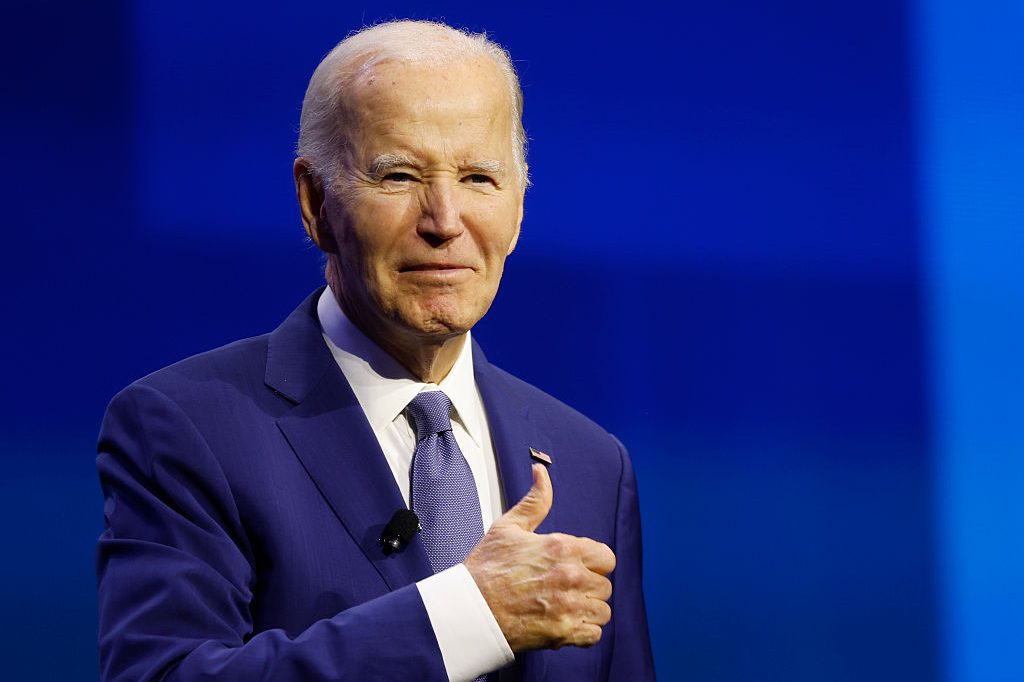Let’s not pretend this is normal. President Joe Biden has admitted that he didn’t personally approve the full list of individuals he pardoned on his final day in office. Instead, he delegated the task to his staff and gave them permission to use an autopen – a mechanical device that stamps his signature – to push through thousands of clemency grants in bulk.
Legally, this is allowed. Morally? It’s disgraceful.
Presidential clemency is one of the few powers in the Constitution left entirely to the judgment of one person. It’s meant to be exercised with moral clarity, human reflection and a sense of final responsibility. What Biden did was effectively outsource that sacred duty to nameless staffers armed with email chains and eligibility “criteria.” Then he signed the whole thing – or rather, a machine did – with a click.
This wasn’t the slow, painful weighing of guilt and redemption. This was a bureaucratic sweep. And the left wants you to believe this is compassion.
The New York Times, not exactly a Trump newsletter, acknowledged that Biden “did not review the full list of individuals,” and that his aides “made the final determinations.” Chief of Staff Jeff Zients reportedly approved the use of the autopen via email, and Biden affixed his rubber-stamped name to more than 2,000 clemency documents without ever seeing many of them.
We are told to take comfort in the fact that Biden “set the standards.” That he trusted his team. That this is how modern governance works.
That’s precisely the problem.
Because if pardons are no longer moral decisions made by the president, but bureaucratic acts made by aides – if they are treated as policy outputs instead of moral judgments – then we’ve hollowed out one of the last truly human functions of the presidency. We’ve automated mercy. Delegated conscience. Mechanized forgiveness.
And we’re supposed to applaud this as efficiency?
It’s worth noting that Biden’s defenders have rushed to say this isn’t unprecedented. Autopens, they point out, have been used before. President Obama used them for legislation. Trump even used one himself. And yes – the Supreme Court has upheld their legal validity. Fine. But legality is not the same thing as principle. A signature can be valid and still lack meaning.
No conservative should confuse what the law allows with what honor demands.
Imagine if Donald Trump had done the exact same thing in his final days – pardoning thousands of people with a machine, admitting he didn’t review the names and insisting “I made every one of those decisions” while clearly having delegated the entire process. It would have been just as wrong. The press would’ve rightly erupted.
But the real issue isn’t whether it’s Biden or Trump – it’s that any president, regardless of party, who treats clemency like a bureaucratic formality instead of a moral responsibility is abusing the spirit of the Constitution. The power to pardon is deeply personal. When either party turns it into an automated policy tool, it ceases to be an act of conscience and becomes an act of cowardice.
But when Biden does it, it’s treated like a quirky detail in a transition story.
There’s a deeper rot here. The autopen controversy isn’t about a machine – it’s about a mindset. The modern presidency has become so insulated by staff, consultants and institutional cowardice that even acts of mercy are reduced to technical exercises. The White House isn’t a place of leadership anymore – it’s a production line of talking points and plausible deniability.
Clemency used to be a moment of moral courage – the president staring down a name, a file, a life and deciding if redemption is deserved. Now it’s a checkbox.
Even worse, the sheer volume of these pardons and their rushed execution on Biden’s last day in office, raises serious questions about motive. Was this an act of mercy – or a cleanup operation? Among those shielded by Biden’s clemency spree were prominent Democrats, military officials and public health bureaucrats like Anthony Fauci, all of whom could face legal scrutiny under a second Trump administration.
Mass pardons as preemptive political protection? That’s not compassion. That’s corruption in plain sight.
In the end, this isn’t just about Biden’s age or judgment – though those are fair questions. It’s about the progressive detachment from responsibility. The belief that intentions matter more than execution. That the system is too big, the problems too complex, and the best a president can do is hand over the steering wheel and hope the bureaucracy drives straight.
But that’s not leadership. That’s management. And we didn’t elect a manager.
If the presidency means anything, it must mean moral accountability – especially when life, liberty and justice are at stake. Clemency isn’t supposed to be convenient. It’s supposed to be weighty. That’s the point.
Joe Biden didn’t violate the law with his autopen spree. He violated something deeper: the principle that judgment requires presence, not just power. And when the White House can stamp away guilt without ever looking someone in the eye, we’re not just losing a tradition – we’re losing the soul of the office itself.
Biden admits he had no idea who he pardoned with autopen
And we’re supposed to applaud this as efficiency

Joe Biden addresses the Society for Human Resource Management on July 2 (Getty)
Let’s not pretend this is normal. President Joe Biden has admitted that he didn’t personally approve the full list of individuals he pardoned on his final day in office. Instead, he delegated the task to his staff and gave them permission to use an autopen – a mechanical device that stamps his signature – to push through thousands of clemency grants in bulk.Legally, this is allowed. Morally? It’s disgraceful.Presidential clemency is one of the few powers in the Constitution left entirely to the judgment of one person. It’s meant to be exercised with moral clarity,…

























Leave a Reply